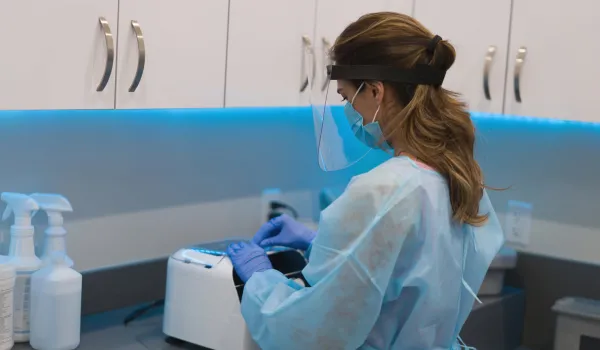Concorde Staff

A variety of scenarios exist in which a health care provider needs to gather information from a patient who's difficult to understand. As a health care worker, it's your job to provide the best level of care possible, but when you can't understand what the problem is, it can be hard to achieve this. Instead of becoming frustrated, the most skilled professionals reach deeper, utilize effective communication strategies, and keep everyone calm in the process.
If that sounds impossible, it doesn't have to be. At Concorde, we work with our students from the very first day to develop alternative ways to describe things so that "speaking patient" becomes second nature to our graduates -- and true comfort to those whom they care for.
DIFFICULTIES IN COMMUNICATION ARE COMMON
The situations are endless. A patient arrives in the emergency room and doesn't speak English. The patient says something is wrong, but cannot communicate what it is. Fear, anxiety and even panic can get in the way of a clear understanding of what's happening. In still other cases, patients have no idea what's wrong, just that something is. It's up to you, the health care professional, to find the fastest, most effective way of getting the necessary information. Consider some of the following strategies to help you facilitate the conversation:
- Create a relationship with the patient by demonstrating your desire to help. This can help calm a worried patient and encourage them to focus on what you are saying rather than what is happening. Making eye contact is important.
- Don't let the job or the task at hand worry you. Communication needs to be slow and calm. To "speak patient," focus on being calm and relaxed while speaking to the patient.
- Use simple sentences and non-medical terms to determine what's wrong. It may not be possible to get all of the details, but it is possible to get a better understanding even when the patient speaks another language or is unresponsive. Don't take words at face value. Get details through creative means. This could mean discussing specific areas that hurt, describing the pain yourself so they can agree or disagree, or asking about related areas of the body.
- Find your source of compassion. One thing that helps qualified health care professionals really stand out is their ability to show compassion to anyone, especially when difficulties in communication occur. For example, a touch on the arm, an understanding and caring voice, and extra attention can all make a big difference.
According to the U.S. National Library of Medicine and National Institutes of Health, communication skills are vital requirements for health care providers. You need to be aware of your skills and practices, gain increasing skills through education and training programs, and realize the value it can offer to the patient and doctor relationship.
As you consider your health care career or begin to research health care career college programs, consider the way you communicate. Are you abrasive and all about the facts? Compassion, showing interest, and providing a calm voice in a stressful and harried situation could be the defining factor in your success in this industry. As a health care worker, you'll need to decipher what your patients mean and understand what your patient doesn't in order for the individual to get the level and type of care they need.
Are your communication skills in tip-top shape? Gain the experience you'll need to be an effective health care professional at Concorde.

Take The Next Step Towards a Brighter Future
We have a Concorde representative ready to talk about what matters most to you. Get answers about start dates, curriculum, financial aid, scholarships and more!



